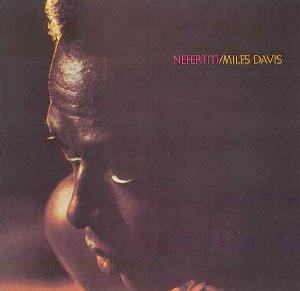|
Composition lately has got mad political pedagogies. But so much of the politics of composition studies reminds me of that line from the Last Poets: “There’s plenty of drama but where is the plot?” Once upon a time the plot focused on students’ rights—to their own languages, to exciting popular pedagogies. Maybe I’m just too used to teaching open admissions students, but I desperately worry about tedium; I keenly appreciate that “strange moods fill our children . . . the streets . . . claim them . . . we cannot keep them in school” (Wright 136). The world may have beaten you and me, but there is still an energy left in our students, even if it’s a negative energy: “they, with young bodies filled with warm blood, feel bitter and frustrated at the sight of the alluring hopes and prizes denied them” (Wright 136). Trying to solve my students’ frustrations is impossible; it’s like trying to solve gangster rap—a riddle, if solved, that could take the world to the next level. Gangster rappers spew the positive force of negativity; sphinx-like, their rhymes demand a solution: “Look at us and know us and you will know yourselves, for we are you, looking back at you from the dark mirror of our lives!” (Wright 146). In order to even think about a solution, I need some silence. I need to mute that voice of cynical power—so insidious is it, so viral, that it easily metastasizes our pedagogy (like our culture) when we least suspect it, making us mistake its incessant savvy chatter for our own heartbeat. So I play hardcore to help drown out that sound—not ambient white noise, but aberrant black noise; a straight reverse-negative—until there’s no trace of that endless, spirit-killing lie that some days I swear is on every radio station, every cable channel, every news story, every magazine. Every damn where. Word, Brian, all the media’s pictures are the same. So it’s like, I hate to even talk about that lie, theorize it, in the space where I teach the pleasures of the text. To use Ice T’s analogy, if the media does not let us hear a nigger, then I want to hear a nigger. I’m supposed to teach some brilliant critique of the dominant white media? I hardly wanna talk about the dominant white media. Miles Davis, in his autobiography, has the best take on it: Johnny Carson and Dick Cavett didn’t show me anything about understanding what I was trying to do. . . . Most of these TV talk-show hosts were only trying to communicate with some tired, old white people from somewhere nobody ever heard about. . . . I figured if I went on those kind of shows, then I would have to tell the motherfuckers that they were just too sad for words, and I know they didn’t want to hear that. (313)Really, just clear the air, please. And the best way I know how to do that is to get on a totally different tip. Drop me to a fresh beat and a dope rhyme. Bring da mutherfuckin’ ruckus. That endless tape-loop—deafening, brutal, relentless—and if it’s unpleasant for me, it must be unbearable for those who live in closest proximity to it. It was heard back in the day, our moms and pops heard it, and I been hearing it since my born day. Non-stop, utterly repetitive, never changes a note. Ernece Kelly heard it back in ’68, the same old song, over and over, creating crazy drama; and she saw where it was headed: I have listened to and have watched the playing out of the kind of drama that continues to be played out each day in this nation. It’s a drama which is called variously “we’re making progress” or “but things are improving” or “we’re going as fast as we can.”“Shit’s gonna happen if niggas start actin’” (Method Man). But hey, to all those people who worry about a writing course based on rap, don’t sweat. It’s just, I would feel a failure if, given my job—exposing students to the conditions and possibilities of verbal communication—I didn’t do some small thing to try shut down the drone of the tape-loop, that white-noise rant which prevents other voices from being heard. Rap represents an historical opportunity; as Ice T sees it, “without rap there’s no voice back at the machine” (Cross 189). I could hype you on many fine reasons for teaching a gangsta-centric composition, but ultimately my decision to let students learn about expression through the material of rap is my own small effort toward drowning out that sick drone. Damn, do I miss ’Pac.
|
